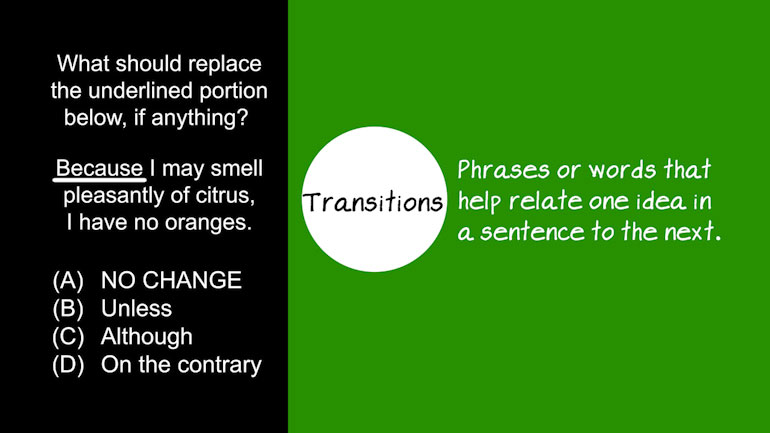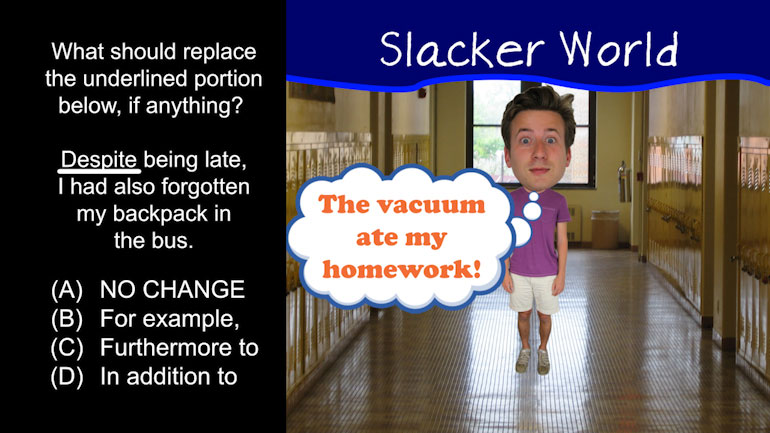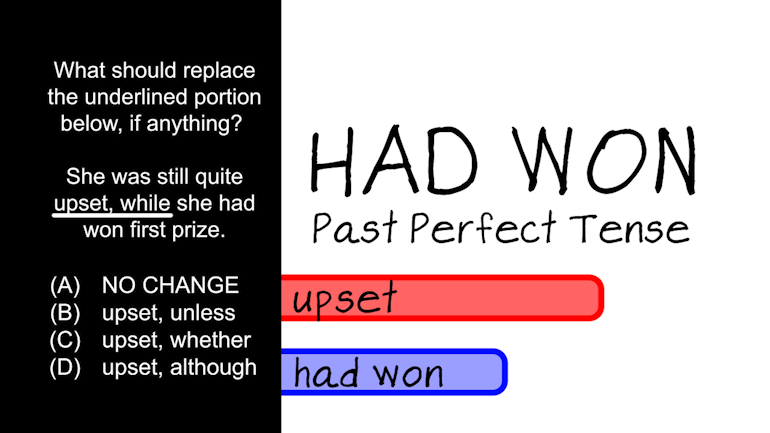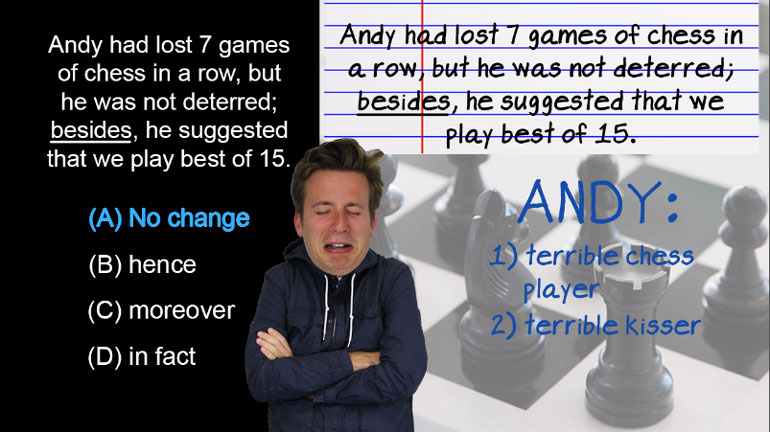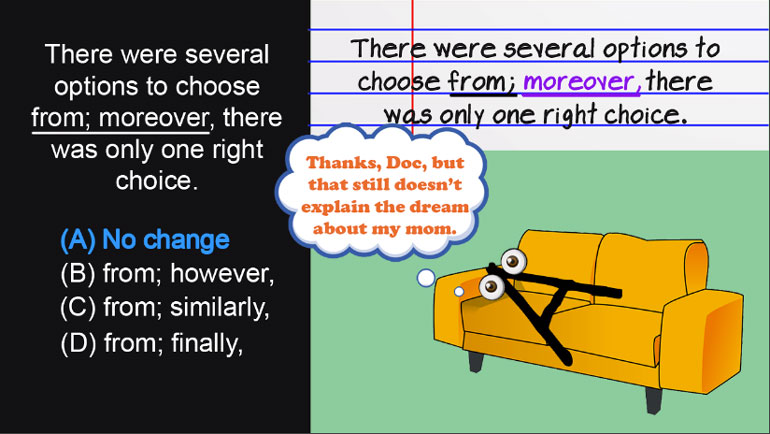ShmoopTube
Where Monty Python meets your 10th grade teacher.
Search Thousands of Shmoop Videos
Playlist ACT® English: Organization 5 videos
ACT English: Organization Drill 1, Problem 1. Which transition works best?
ACT English: Organization Drill 1, Problem 2. Picking the right transition word.
ACT English: Organization Drill 1, Problem 3. Can you find the correct transition?
ACT English 1.1 Organization 401 Views
Share It!
Description:
ACT English: Organization Drill 1, Problem 1. Which transition works best?
- Rhetorical Skills / Organization: Sentences and Paragraphs
- Product Type / ACT English
- English I EOC Assessment / Introductory and Concluding Paragraphs
- English I EOC Assessment / Organization
- Expository Texts / Rhetorical Devices and Transistions
- Oral and Written Conventions / Parts of Speech
- Essay Revision / Coherence, Organization, and Word Choice
- Essay Revision / Rhetorical Effectiveness and Use of Organization
- Rhetorical Skills / Organization
Transcript
- 00:04
Here's your Shmoop du jour, brought to you by transitions. The parts of speech that just
- 00:09
can't ever seem to stand still.
- 00:13
What should replace the underlined portion below, if anything?
- 00:18
Because I may smell pleasantly of citrus, I have no oranges.
- 00:29
A lot of our choices here are what's known as "transitions," phrases or words that help
Full Transcript
- 00:34
relate one idea in a sentence to the next.
- 00:37
Each one is like a bridge that tells us the relationship between the place we're leaving
- 00:41
and the place we're headed.
- 00:46
The sentence in question is in bad need of a transition word that expresses some kind
- 00:50
of contradiction.
- 00:52
We've got two basic ideas: the speaker smells like citrus, and he or she doesn't have oranges.
- 00:58
These two ideas are kind of at odds with each other, right? Therefore we need a transition
- 01:03
word that gets across this contradictory relationship.
- 01:06
So, we know we can eliminate choice (A).
- 01:09
"Because" is used when one thing is directly caused by the next. It's used for showing
- 01:14
logical linkages, not contradictions.
- 01:16
(B) is wrong because "unless" tries to make oranges conditional on the smell of citrus.
- 01:24
If it said something like, "Unless I have oranges, I won't smell like citrus," then
- 01:28
it would make more sense.
- 01:31
That isn't an option, however. So we can eliminate choice (B).
- 01:34
(D) gives us the introductory phrase "on the contrary." Introductory phrases set the stage
- 01:39
for the sentence to come, and they always require a comma to set them apart.
- 01:44
Choice (D) has no comma and sounds like total gobbledygook.
- 01:48
Because of its punctuation error, we don't have to give (D) another thought.
- 01:53
Choice (C) correctly uses the transition word "although."
- 01:58
It sets up the contradiction we've been looking for, making it understood that this person
- 02:02
smells like citrus even though he or she doesn't have any.
- 02:09
Our best guess is that the speaker ate all the oranges before he or she arrived, leaving
- 02:12
none for anybody else. What a jerk.
Related Videos
ACT English: Punctuation Drill 2, Problem 3. Where does the semicolon fit best?
ACT English: Punctuation Drill 2, Problem 2. Where should the semi-colon be placed?
ACT English: Punctuation Drill 3, Problem 1. How should this sentence be changed so that it is grammatically correct?
ACT English: Punctuation Drill 3, Problem 2. How should we properly hyphenate the words in this sentence?
ACT English: Punctuation Drill 3, Problem 4. Which choice best formats this list of items?
